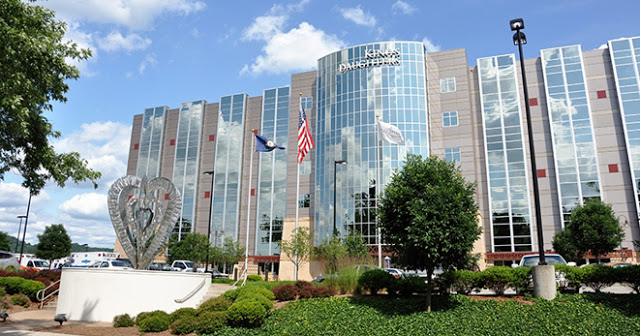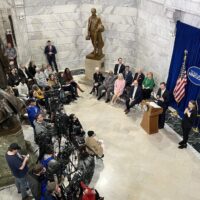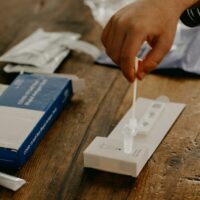
As a smaller share of Kentuckians tested positive for the coronavirus, the hospital in Ashland reported that it had filled up from a surge of COVID-19 cases.
Gov. Andy Beshear announced in a press release that 3.6 percent of Kentuckians who were tested for the virus in the last seven days turned up positive, “our lowest rate in months. When we asked for people to push off in-person classes in our schools until Sept. 28, it was so we could get our positivity rate down to a safer level.” A rate of 5% of more puts a state or locality in an official danger zone.
In the Ashland area, “Covid is intensely surging in our communities,” Kristie Whitlatch, president and CEO of King’s Daughters Hospital, said in a Facebook post. “No longer can we say it is primarily impacting those with underlying health conditions or nursing-home residents. It is attacking babies, children, and healthy, active men and women who have no idea how they were exposed. We are also seeing difficult recoveries, many taking months to fully recover and some who have yet to fully recover and may see the impact for the rest of their lives. Our infectious-disease specialists and other medical professionals are very concerned.”
Nursing-home visits: The federal Centers for Medicare and Medicaid Services relaxed its COVID-19 guidelines for long-term-care facilities, allowing visits at those that have gone 14 days without a case among residents or employees. Kentucky has been following a 28-day standard.
“Since March, family members have only been allowed to visit their loved ones for so-called compassionate care,” NPR reports. “This was interpreted strictly by many nursing homes to mean end-of-life situations. The new guidance from CMS expands the criteria to include residents who were living with their family before admission to the nursing home and are now struggling with the change in environment, residents who need family members to provide encouragement with eating or drinking, and residents experiencing emotional distress or crying more frequently. The guidance says this should not be regarded as an exhaustive list.”
- Of the 777 new coronavirus cases, 97 were in Kentuckians 18 or younger. Counties with more than 10 new cases were Jefferson, 146; Fayette, 116; Madison, 36; Daviess, 33; Warren, 30; Oldham, 26; Boone, 20; Union, 19; Hardin, 16; Henderson, 16; Laurel, 15; Kenton, 12; and Barren, Boyd and Mercer, 11 each.
- Friday’s fatalities were an 85-year-old man from Bell County; a 96-year-old man from Christian County; a 96-year-old man from Fayette County; a 90-year-old woman from Greenup County; a 53-year-old man from Hopkins County; a 73-year-old woman from Laurel County; a 78-year-old woman from Pulaski County; and a 91-year-old woman from Scott County.
- K-12 schools reported seven more cases, three students and four employees, raising the active-case totals to 340 and 165, respectively.
- Colleges and universities reported 119 new cases among students, making for 1,098 active cases.
- The University of Kentucky said it would randomly test students for the virus, following “a productive dialogue in which senior leaders engaged earlier in the week with Dr. Deborah Birx, the national coronavirus response coordinator,” who visited the campus and praised UK’s response. The tests will be free and will continue through the semester, which ends Nov. 24. Spokesman Jay Blanton said in an email that UK plans to test about 400 students in a first round of tests that it expects to be done by Wednesday. “We will follow up with students who do not comply and ask them to test,” he said. “If there is not compliance, ultimately, they are subject to sanctions in the student code, which generally range from education all the way to expulsion. But we have found that the vast majority of students have worked to comply with our testing and public-health protocols.”
(Kentucky Health News is an independent news service of the Institute for Rural Journalism and Community Issues, based in the School of Journalism and Media at the University of Kentucky, with support from the Foundation for a Healthy Kentucky.)





